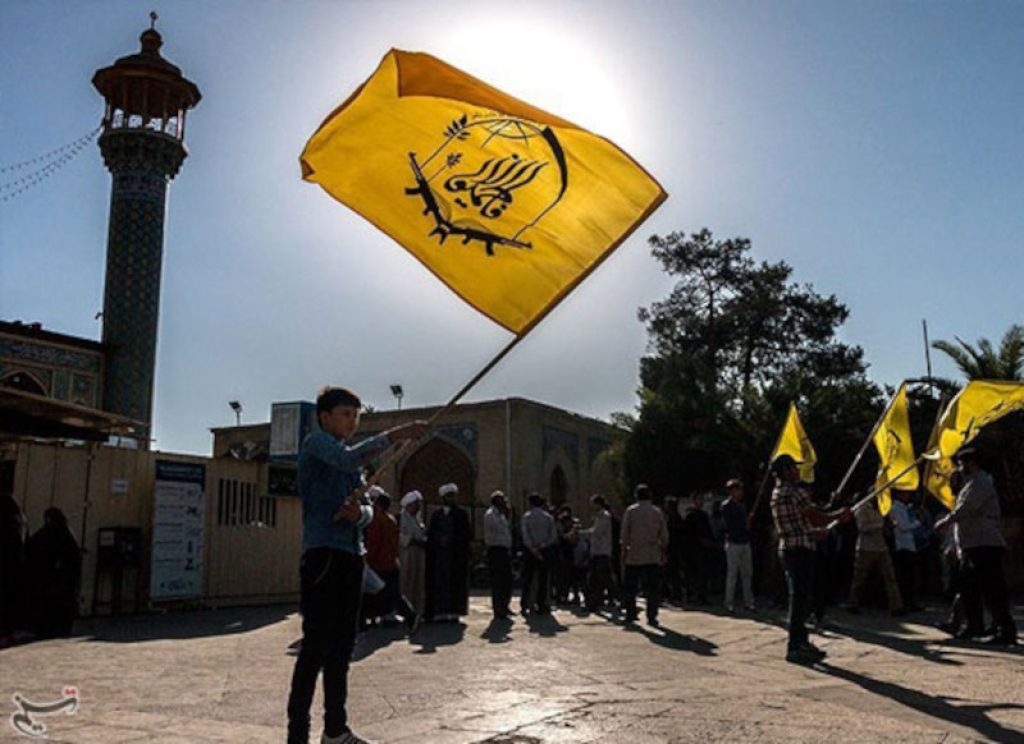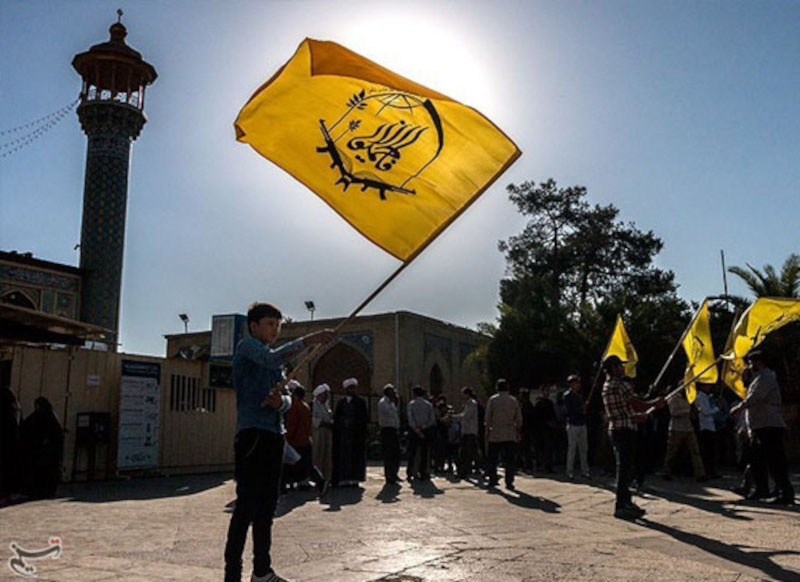 An image from the IRGC-affiliated Tasnim News Agency shows a child waving the flag of the Fatemiyoun Brigade, a militia made up largely of Afghan Shiites, during a burial ceremony for fighters killed in Syria.
An image from the IRGC-affiliated Tasnim News Agency shows a child waving the flag of the Fatemiyoun Brigade, a militia made up largely of Afghan Shiites, during a burial ceremony for fighters killed in Syria.
The Islamic Revolutionary Guard Corps (IRGC) has reportedly asked the Taliban for access to a leaked list of Afghan nationals who assisted the United Kingdom, aiming to identify individuals affiliated with the MI6 intelligence agency. According to The Telegraph, the IRGC has formed a special committee to track and potentially arrest Afghans who worked with British forces, seeking to use them as leverage ahead of possible negotiations between Tehran and Europe.
The database requested by Iran contains the personal information—names, contact details, and affiliations—of over 25,000 Afghans who applied for UK asylum. The list includes former soldiers, intelligence assets, and special forces, as well as the names of more than 100 British operatives who endorsed them. It was accidentally disclosed by a Royal Marine in February 2022 and has since been exploited by the Taliban.
Tehran’s interest in the UK-linked database reflects a broader trend: the regime increasingly views Afghan nationals not just as migrants, but as potential leverage or threats, depending on their affiliations. This shift is evident in both its diplomatic maneuvers and internal crackdowns.
Iran’s reported request to the Taliban comes weeks after Iran expelled over 300,000 Afghan nationals after its 12-day conflict with Israel, with a total of 1.4 million deported since January 2025. Citing security concerns, Iranian government Spokesperson Fatemeh Mohajerani stated on July 2, “We’ve always striven to be good hosts, but national security is a priority, and naturally illegal nationals must return.”
State-run media echoed this sentiment, characterizing Afghans who illegally enter Iran as a national security risk. “The fact that thousands of military and security personnel trained by the Americans fled in fear after the fall of Kabul and the country’s dramatic political shift, and that some entered Iran, is self-evident. But the question of why some are now being used as tools by the enemy against us points to both a failure in intelligence and an oversight,” one outlet wrote on July 2.
Iran’s regime security forces targeted numerous Afghan nationals during the 12-day Israel-Iran war, accusing them of acting on Israel’s behalf. On June 16, Basij units in Lorestan Province claimed to have intercepted five Afghans allegedly carrying drones, though no equipment was visible in the arrest footage. Two days later, police in Rey City apprehended another Afghan national, citing his alleged ties to the Mossad and the discovery of drone and bomb-making materials on his phone. On June 19, authorities in Mashhad’s Mehrabad district took 18 Afghans into custody for allegedly assembling explosive and surveillance drones for Israel under the guise of local workshops. Officials said that some of the individuals had received specialized training abroad and were stopped before executing any operations.
Quoting anonymous regime officials, the Qatari outlet Middle East Eye reported on August 4 that Tehran sees the influx of undocumented Afghan migrants into Iran as a significant security vulnerability. One government source stated, “Afghans in Iran are not Israeli spies,” but noted that the large number of illegal crossings after the Taliban takeover created a major opportunity for Israeli intelligence. The source described a tactic in which Israeli operatives exploited vulnerable Afghan migrants, paying them to put together components used in drone operations without revealing the end purpose. “They didn’t know who they were working for—they were just following instructions,” the source said.
Despite this framing, the Tehran regime has selectively relied on Afghan nationals when it serves its interests. The Fatemiyoun Brigade, a militia made up largely of Afghan Shiite fighters, played a central role in Tehran’s military campaigns during the Syrian Civil War before the fall of Bashar al Assad.
The Islamic Republic’s strict vetting for security roles prioritizes loyal insiders, meaning Afghan migrants and their descendants do not hold sensitive positions and are of little value to Israeli intelligence. Another motive behind the mass deportations and arrests may be the regime’s desire to claim it successfully disrupted Israeli operations, preserving its image among loyalists. The issue of undocumented Afghan migration has also been a point of internal political contention, and expelling them may serve to stoke nationalist sentiment during wartime, allowing the regime to project that it is taking decisive action.
